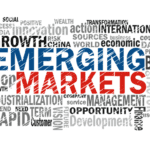Today, global markets feel unstable because global geopolitical risks remain elevated. Conflicts in the Middle East persist. The Russia-Ukraine war continues. U.S.-China trade tensions remain unresolved despite the easing associated with the 90-day pause recently agreed upon by the respective governments. These events cause anxiety for investors and businesses alike. They question how policy shifts disrupt industries, how supply chains will be effected and about overall economic growth. Hemispheres Investment Management understands these concerns. As global value investors, Hemispheres assists and guides investors through this complex landscape. Hemispheres is a long-term investor that invests in quality companies where the share price trades at a discount to the firm’s intrinsic value.
Understanding the Interconnected Nature of Geopolitics and Markets
Geopolitical events such as wars, terrorism events, trade disputes, elections and other diplomatic concerns directly sway financial markets and market sentiment by raising uncertainty. Because investors find it difficult to accurately quantify the duration of the shock, the effect on the economy as a whole or the effect on corporate profits specifically, share prices can suffer[1].
Most recently, trade tariffs resulted in market volatility. Trade and investment often face disruptions. Sanctions, tariffs, and embargoes limit the free flow of goods and services. Supply chains reveal vulnerabilities. Just-in-time inventory systems struggle. Companies must reroute goods. Many organizations choose to follow nearshoring trends. These shifts create uncertainty.
The Far-Reaching Effects of Trade Wars and Tariffs
Trade wars involve retaliatory tariffs. These actions have economic consequences. Companies face rising input costs. Their profit margins shrink. Exporting firms struggle to compete. Multinational corporations feel the pinch. Global growth often slows[2].
Economies are deeply interconnected. Trade disputes affect everyone[3]. Supply chains also shift significantly. Companies de-risk their operations. They move production from China. Mexico or Vietnam often become new hubs. This helps bypass restrictive tariffs. Sometimes, costs pass to consumers. Tariffs generally fuel inflationary pressures.
The U.S.-China relationship remains tense and impacts technology crucial to both countries. Semiconductors are a prime example. Critical minerals also face scrutiny. These ongoing tensions shape global trade. They create both challenges and opportunities.
Supply Chain Resilience: From Vulnerability to Strategic Advantage
Supply chains are vulnerable to shocks. Geopolitical events expose weaknesses. Companies adapt to these challenges[4]. Many diversify their sourcing. They reduce reliance on single regions. Some move production closer to home. This is called reshoring. Others choose allied nations. This nearshoring trend is growing stronger.
Technology helps build resilience. AI and machine learning predict issues. Automation boosts manufacturing flexibility. Companies also build inventory buffers (versus “just-in-time” inventory levels). Maintaining higher inventories is more expensive for corporations, but reduced reliability is often untenable. These adaptations create new investment areas. Logistics and automation look promising. Resilient infrastructure offers growth[5].
Strategies for Building a Resilient Investment Portfolio
Investing during turmoil requires discipline. A long-term view helps avoid panic. Strategic diversification is key. Spread investments across geographies. This reduces concentrated risk. Avoid a “home bias” in your portfolio. Invest in different countries and regions[6].
Diversify across asset classes too. Balance equities with bonds[7]. Bonds offer stability in growth shocks. Consider real assets like gold. Real estate can combat inflation. Alternative investments also offer options. Diversify across various sectors. Utilities and healthcare are often defensive. They perform better in downturns[8].
Focus on companies with strong fundamentals. Look for robust balance sheets. Seek diversified revenue streams. Choose adaptable business models. A long-term perspective is crucial. Do not panic sell during market drops. Maintain cash reserves for liquidity. This provides a buffer for downturns. It also helps capitalize on opportunities.
Identifying Opportunities Amidst Geopolitical Shifts
Risks are always present. Yet, new opportunities emerge. Increased government spending helps defense. Cybersecurity and AI are growing fast. Their importance for national security rises. They also boost supply chain resilience. Renewable energy gains traction. Geopolitical events drive energy independence.
Some emerging markets thrive. They might avoid major conflicts. Others benefit from new trade routes. Companies with adaptable supply chains succeed. They de-risk their operations effectively. They also drive innovation. Investors can find value in these areas.
Hemispheres Investment Management
Hemispheres Investment Management is a wealth manager with a global (domestic and international investments in the same portfolio) investment management focus. Our team of seasoned professionals each have over 35-years of experience researching, managing or strategizing investments and investment portfolios, including deep proficiency in U.S., international and emerging markets. Hemispheres can assist you in diversifying your portfolio globally. Global Equities is Hemispheres’ flagship investment product.
Please contact Hemispheres Investment Management for free consultation. We provide guidance and strategies to assist you in optimizing your investment policy and helping you achieve your investment goals. Book a meeting.
This article is for informational purposes only. Consult your financial advisor regarding the suitability of any individual security or sector before investing.
- [1]International Monetary Fund (IMF)
- Fendoglu, S., Qureshi, M. S., & Suntheim, F. (2025, April 14). How Rising Geopolitical Risks Weigh on Asset Prices. IMF Blog. https://www.imf.org/en/Blogs/Articles/2025/04/14/how-rising-geopolitical-risks-weigh-on-asset-prices
- International Monetary Fund. (2025, April). Geopolitical Risks: Implications for Asset Prices and Financial Stability (Global Financial Stability Report, Chapter 2). https://www.imf.org/-/media/Files/Publications/GFSR/2025/April/English/ch2.ashx
- Gourinchas, P.-O. (2025, April 22). The Global Economy Enters a New Era. IMF Blog. https://www.imf.org/en/Blogs/Articles/2025/04/22/the-global-economy-enters-a-new-era
[2] Global Economic Prospects, January 2025
[3] UN forecasts slower global economic growth | AP News
[4] Supply Chain Disruptions: A Double Edged Sword
- [5]Marsh (Insurance Brokerage)
- Recamara, J. (2025, March 11). Rising geopolitical tensions increase supply chain risk in 2025 – report. Insurance Business America. https://www.insurancebusinessmag.com/us/news/risk-management/rising-geopolitical-tensions-increase-supply-chain-risk-in-2025–report-528060.aspx
- Arthur D. Little (Management Consulting Firm)
- Arthur D. Little. (n.d.). Developing resilience for global supply chains in crisis. https://www.adlittle.com/en/insights/viewpoints/developing-resilience-global-supply-chains-crisis
- Maersk (Shipping and Logistics)
- Maersk. (2025, February 28). Navigating 2025’s Geopolitical Supply Chain Landscape. https://www.maersk.com/insights/resilience/2025/02/28/geopolitical-supply-chain-landscape
[6] 2025 Mid-year Outlook: Comfortably Uncomfortable
[7] Core Plus Bonds: A Closer Look at Fixed-Income Investing
[8] Navigating Volatile Markets: Key Defensive Investment Strategies






